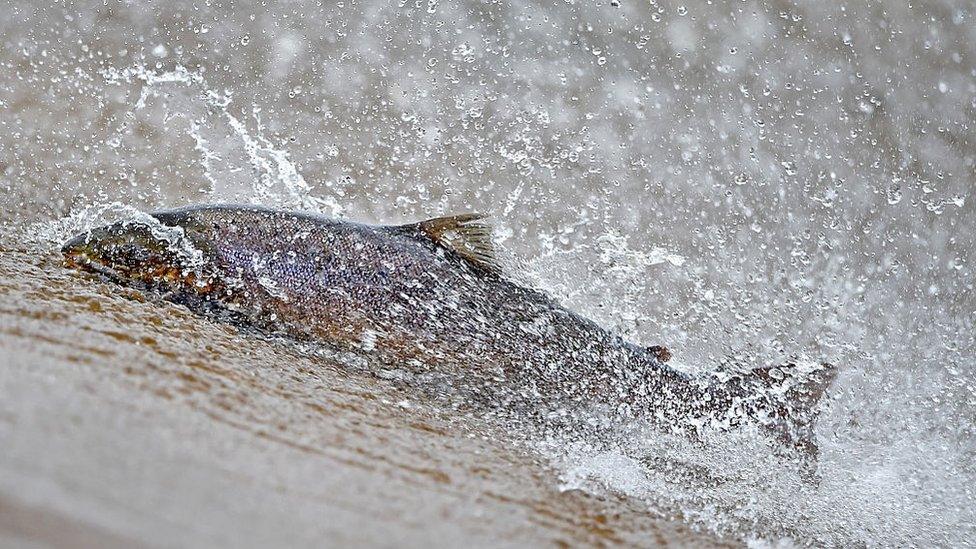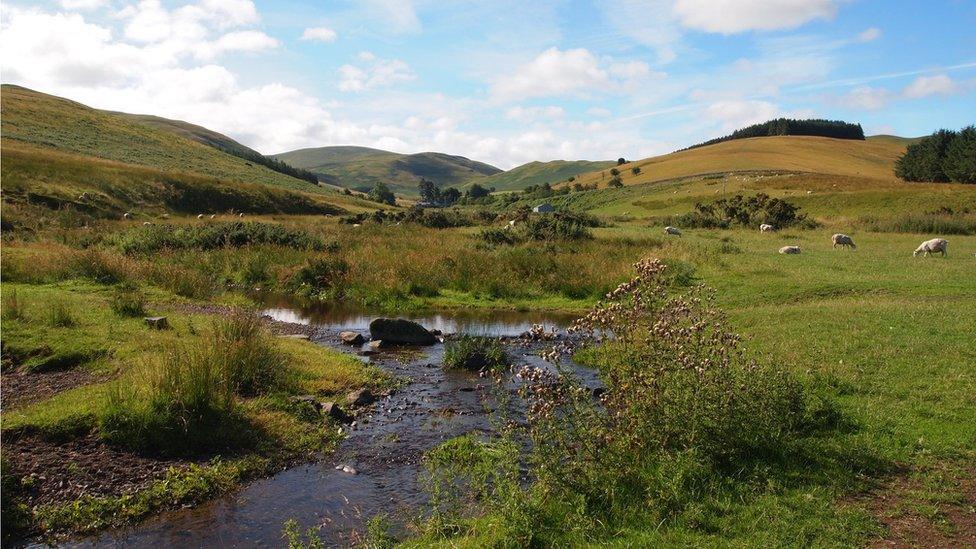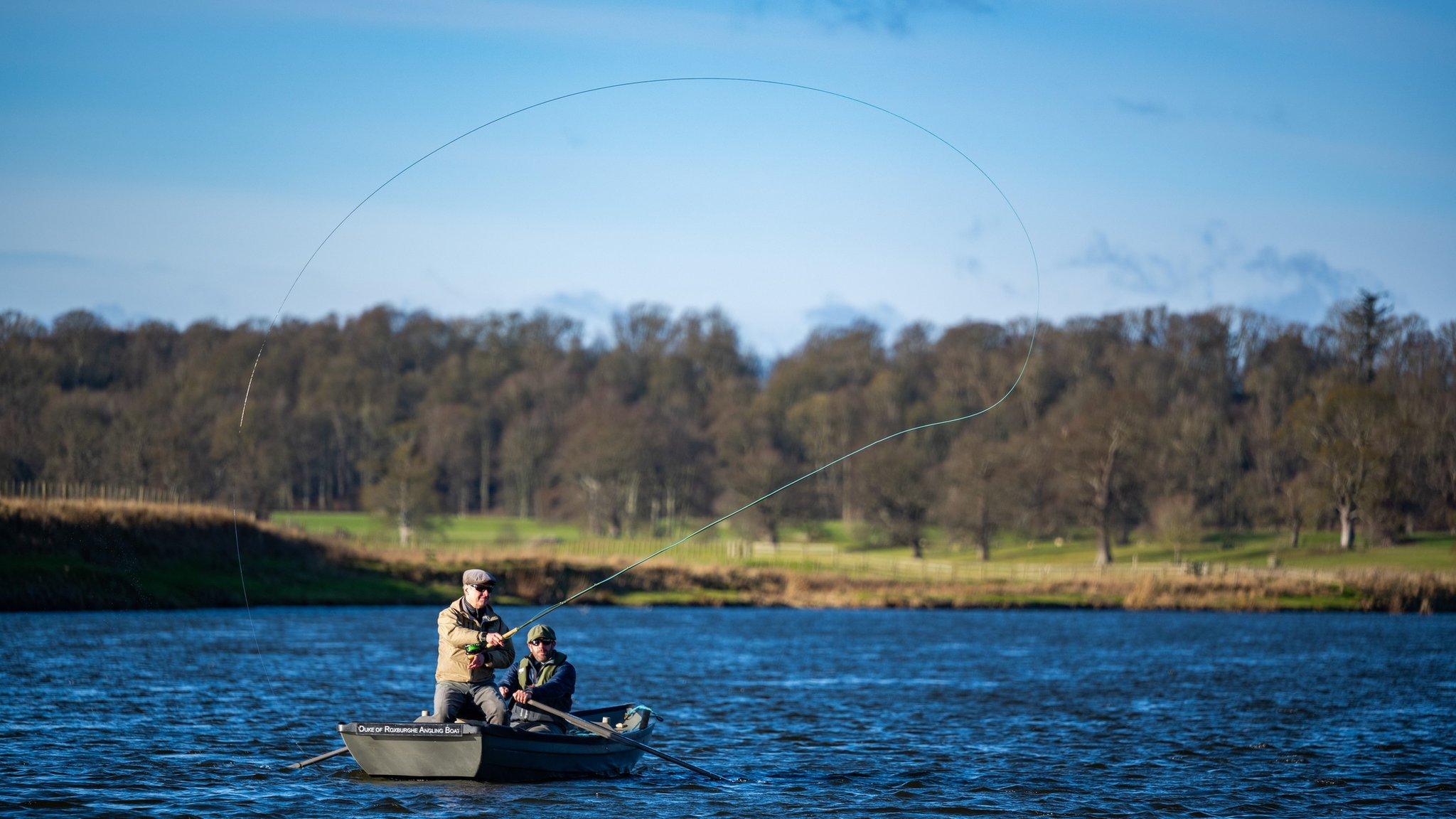Salmon set to return to Borders burn after decades
- Published

Removal of a weir will allow salmon back to their old spawning grounds
Threatened Atlantic salmon will soon be able to reach ancient spawning grounds on a River Tweed tributary for the first time in decades.
Numbers of the fish have dropped drastically in recent decades.
The Scottish Environment Protection Agency (Sepa) is now looking to open up previous breeding areas on the Halter burn by removing an agricultural weir.
Sepa's Francis Hayes said: "Its removal will bring significant environmental benefits."
The Halter burn, deep in the Cheviot hills, is reached by salmon and sea trout returning along the rivers Tweed, Till and then Bowmont water.
Environmentalists have not been able to establish the age of the weir, but believe it had been used for many decades to feed a now redundant lade and farm pond.

The Halter burn flows from the Cheviots
Concern is growing over the low numbers of Atlantic salmon returning to their spawning grounds each year.
The River Tweed Commission reported that 6,690 salmon were rod caught and then released last year - down from 23,000 just 12 years ago.
Mr Hayes, who is a river restoration specialist at Sepa, added: "Rivers are a vital part of our landscape and a great asset to Scotland.
"They provide wildlife corridors, opportunities for recreation and wellbeing benefits for local communities.
"However, there are redundant weirs installed in some rivers, making them impassable to fish such as Atlantic salmon and sea trout.
"The Halter burn weir is one such barrier."
It measures just 10 metres (30ft) across and 1.8 metres (6ft) in height, but it proves a big enough obstacle to prevent fish reaching the gravel grounds higher up the six-kilometre watercourse in the hills above the village of Kirk Yetholm.
Sepa is now in the process of appointing a contractor to carry out a topographic survey of the weir ahead of its removal next year.
Last year weirs were removed from two other water courses in Scotland - the River Eden at Gateside Mills in Fife, and on the Bronie burn near Ellon in Aberdeenshire - allowing migrating fish to access a further 30km (20 miles) of habitat.
SEPA said the Halter burn project would be funded by its Water Environment Fund.
- Published9 March 2023
